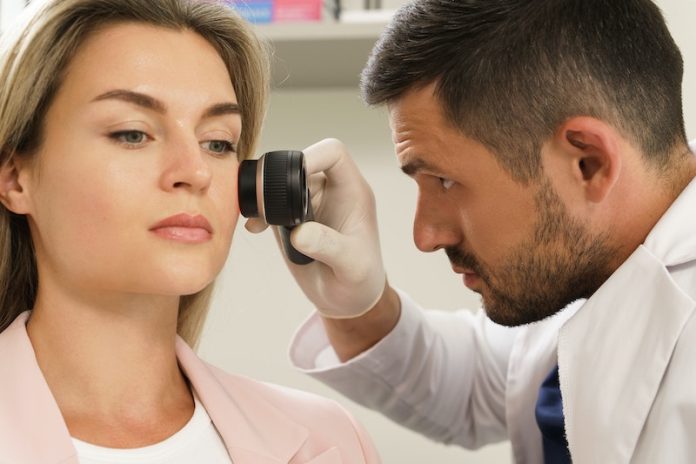
Artificial intelligence (AI) has gained prominence in medical diagnostics, including the field of dermatology.
A research team led by dermatologist Harald Kittler from MedUni Vienna conducted a study to assess the practical utility of AI in diagnosing and recommending treatment for pigmented skin lesions.
The study, published in The Lancet Digital Health, compared the performance of AI algorithms in smartphone applications with that of medical professionals in a clinical setting.
AI Diagnosis vs. Human Diagnosis
The research team evaluated two distinct AI algorithms in smartphone applications and compared their diagnostic accuracy with that of doctors.
The study revealed that AI applications generally performed well in diagnosing pigmented skin lesions. However, when it came to treatment recommendations, doctors outperformed the AI.
The AI applications were tested in realistic clinical conditions at two skin cancer centers:
the University Department of Dermatology at MedUni Vienna and the Sydney Melanoma Diagnostic Center in Australia. The prospective study comprised two scenarios:
- Scenario A: Focused on evaluating changes suggestive of skin cancer, involving 172 suspicious pigmented lesions (84 of which were malignant) in 124 patients.
- Scenario B: Examined patients with numerous moles, assessing 5,696 pigmented lesions (18 of which were malignant) in 66 patients.
Two different AI-based smartphone applications were used in these scenarios: a novel 7-class AI algorithm and an ISIC algorithm previously used in retrospective preliminary studies.
Diagnostic Accuracy
In Scenario A, the 7-class AI algorithm demonstrated diagnostic accuracy equivalent to that of medical experts, outperforming less experienced physicians.
In contrast, the ISIC algorithm fared worse than experts but better than inexperienced users.
Treatment Recommendations
When it came to treatment decisions, the 7-class algorithm was found to be significantly less accurate than the experts but better than the less experienced physicians.
This suggests that an AI-assisted smartphone application for diagnosing skin cancer can make diagnostic decisions comparable to experts in real clinical settings. However, experts excelled in providing treatment recommendations.
AI Applications: A Critical Perspective
Harald Kittler cautioned that AI applications often tend to recommend removing more benign lesions than experts would. While AI can be a valuable tool in skin lesion diagnosis, it should be used critically.
Overreliance on AI without expert oversight could lead to an excessive number of false-positive findings, necessitating further evaluation and treatment.
In conclusion, this study highlights the potential of AI in diagnosing pigmented skin lesions, demonstrating its effectiveness in a clinical setting.
However, it emphasizes the need for a cautious approach, particularly in treatment recommendations, where human expertise currently outperforms AI.
Integrating AI as a supplementary diagnostic tool alongside experienced medical professionals may offer the best approach to benefit patients while minimizing unnecessary procedures.
If you care about skin cancer, please read studies about eating fish linked to higher risk of skin cancer and findings of Mediterranean diet could help lower the skin cancer risk.
For more information about skin health, please read studies about eating fish linked to higher risk of skin cancer, and Vitamin B3 could help prevent skin cancers.
The research findings can be found in The Lancet Digital Health.
Follow us on Twitter for more articles about this topic.
Copyright © 2023 Knowridge Science Report. All rights reserved.



